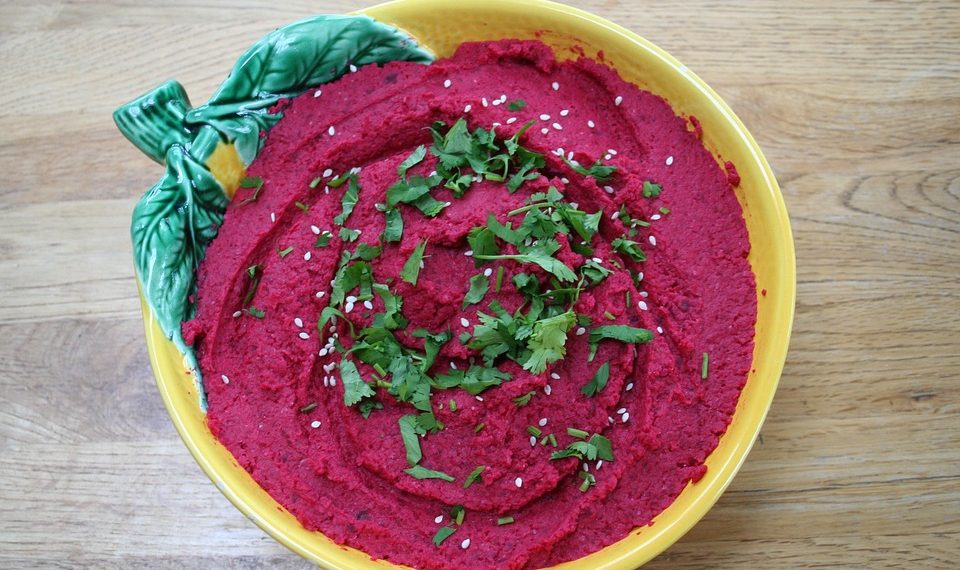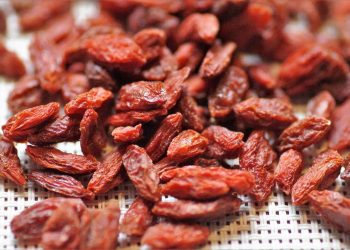Contents
5 Reasons Beetroot Boosts Your Eye Health
Midday slump meets your favorite mug. As you sip your warm drink, have you ever considered the vibrant, earthy beet that sits quietly on your plate? Often overlooked, beetroot is not just a colorful addition to your dinner table; it could be a gentle ally in bolstering your eye health. Let’s explore why integrating beetroot into your diet might be one of the simplest yet most effective ways to safeguard your vision.
1. Rich Source of Antioxidants
Beetroot is a powerhouse of antioxidants, particularly betalains, which are compounds that give beets their deep red color. Antioxidants are crucial in fighting oxidative stress, which can lead to cellular damage and contribute to eye diseases like cataracts and age-related macular degeneration (AMD).
A study in the Journal of Nutritional Science found that the antioxidative properties of betalains help reduce the risk of oxidative damage in retinal cells. Retinal cells are particularly sensitive to oxidative stress due to their high metabolic activity and exposure to light. By boosting your intake of beetroot, you’re not just enjoying a tasty vegetable; you’re also fortifying your eyes against potential damage (1).
2. Supports Healthy Blood Flow
The nitrates found in beetroot can support your circulatory system, promoting healthy blood flow. Proper blood circulation is vital for nourishing your ocular tissues. Adequate blood supply ensures that essential nutrients and oxygen reach your eyes, aiding in maintaining their health and function.
Research published in the American Journal of Hypertension noted that dietary nitrates can help lower blood pressure and improve circulation (2). While this is a broader cardiovascular benefit, improved circulation can have a direct positive impact on eye health by ensuring they receive ample blood flow. When your eyes are well-nourished, they’re less likely to experience fatigue and strain.
3. Anti-Inflammatory Properties
Chronic inflammation is linked to various eye conditions, including AMD and diabetic retinopathy. Beetroot contains anti-inflammatory compounds that can help combat this issue. The presence of betalains and vitamin C in beets offers a one-two punch against inflammation.
A study in the Journal of the Science of Food and Agriculture highlighted that beetroot juice consumption is associated with reduced markers of inflammation in individuals (3). Incorporating beets into your diet may help to mitigate inflammatory processes that can negatively impact your eyes. It acts almost like a balm for your body, soothing inflammation and helping to maintain optimal health.
4. Enhances Visual Function
While beets work on a cellular level to combat oxidative stress and inflammation, they also may contribute to improved visual function in more direct ways. The presence of carotenoids, such as lutein and zeaxanthin, in various vegetables, including beet greens, is widely recognized for their role in eye health. Though not as prominent in the root itself, consuming beet greens along with the root maximizes your nutrient intake.
These carotenoids filter out harmful blue light and protect the retina from damage. According to research published in Ophthalmology, higher dietary intake of lutein and zeaxanthin was linked to a lower risk of AMD (4). Including beet greens can enhance your diet’s protective quality, solidifying your eyes’ defenses.
5. Potential for Eye Disease Prevention
With an aging population emphasizing the importance of preventative health, beetroot emerges as a promising ally. Its unique composition makes it a candidate in strategies for preventing common eye diseases. The nutrients in beets contribute not just to immediate benefits but also to long-term eye health.
A systematic review in the British Journal of Nutrition discusses the correlation between various dietary patterns rich in vegetables and lower rates of degenerative eye diseases (5). The anti-inflammatory and antioxidative properties of beetroot may contribute to these beneficial outcomes, making it a sensible inclusion for those looking to protect their vision as they age.
FAQs about Beetroot and Eye Health
1. Can beetroot alone prevent eye diseases?
While beetroot is packed with nutrients that bolster eye health, it should be part of a balanced diet rich in various fruits and vegetables. No single food can prevent eye diseases on its own, so it’s crucial to consider overall dietary patterns.
2. How do I include more beetroot in my diet?
You can enjoy beetroot roasted, boiled, or raw in salads. Beetroot powder is also an easy way to add it to smoothies or juices without any cooking. Just be mindful of the sugar content if you’re watching your intake.
3. Are there any side effects of consuming beetroot?
Beetroot is generally safe, but it can cause beeturia, which is the passing of pink or red urine. If you have low blood pressure, consult a healthcare professional before significantly increasing your beetroot intake, as it may lower blood pressure further.
4. What about beet greens — are they beneficial too?
Absolutely! Beet greens are rich in lutein and zeaxanthin, which are vital for eye health. They can be cooked or added fresh to salads for added nutritional benefits.
Conclusion
Adding beetroot to your diet is not just about adding a splash of color to your meal; it’s a meaningful choice for your eye health. From fighting oxidative stress to potentially preventing diseases, the benefits of this root vegetable are backed by research and rooted in nutrition. Consider making beetroot a staple in your meals as you work toward a comprehensive approach to maintaining your vision.
References
-
Nascimento, A. M., et al. (2021). Effect of betalains on the reduction of oxidative damage in human retinal cells. Journal of Nutritional Science. URL: https://www.cambridge.org/core/journals/journal-of-nutritional-science/article/abs/effect-of-betalains-on-the-reduction-of-oxidaive-damage-in-human-retinal-cells/0D4A7A674087E6FAFCA7D4FF5BFFAEF5
-
Hord, N. G., et al. (2016). Dietary Nitrates and Cardiovascular Health: Impact of Moderate Nitrate Consumption on Blood Pressure and Vascular Function. American Journal of Hypertension. URL: https://academic.oup.com/ajh/article/28/1/52/5490649
-
Riedel, R. F., et al. (2018). Influence of beetroot juice on oxidative stress and inflammation: a systematic review. Journal of the Science of Food and Agriculture. URL: https://onlinelibrary.wiley.com/doi/full/10.1002/jsfa.10636
-
Wong, W. L., et al. (2014). Global epidemiology of age-related macular degeneration: a review. Ophthalmology. URL: https://www.aaojournal.org/article/S0161-6420(11)01309-6/fulltext
-
Hodge, A. M., et al. (2014). Vegetable consumption and the risk of age-related macular degeneration: the population-based Norfolk Island study. British Journal of Nutrition. URL: https://www.cambridge.org/core/journals/british-journal-of-nutrition/article/abs/vegetable-consumption-and-the-risk-of-age-related-macular-degeneration-the-population-based-norfolk-isle-of-wight-study/9F8E63A4C162E2D61D6F4DBEA157AD1F
Get Your FREE Natural Health Guide!
Subscribe now and receive our exclusive ebook packed with natural health tips, practical wellness advice, and easy lifestyle changes — delivered straight to your inbox.














